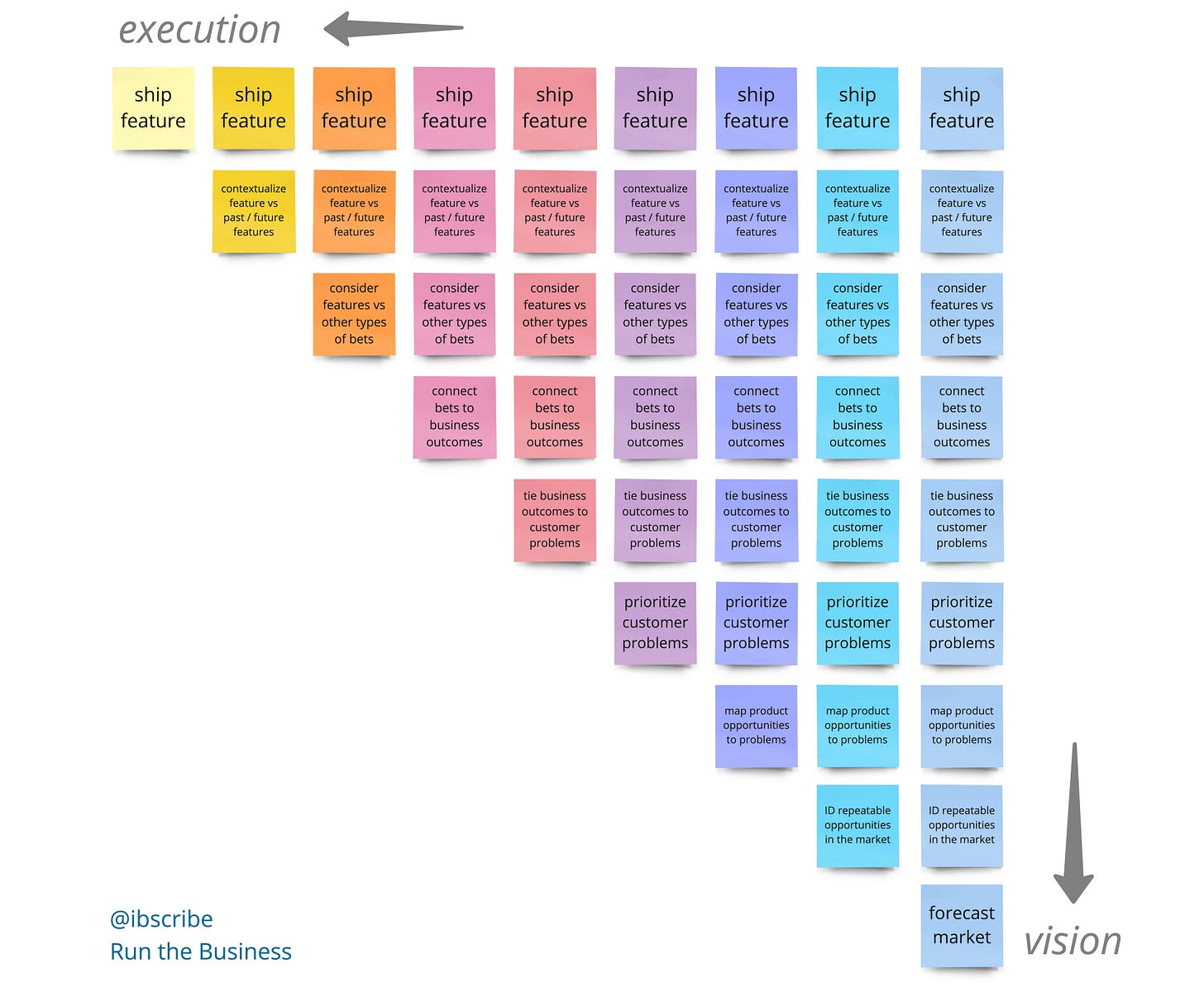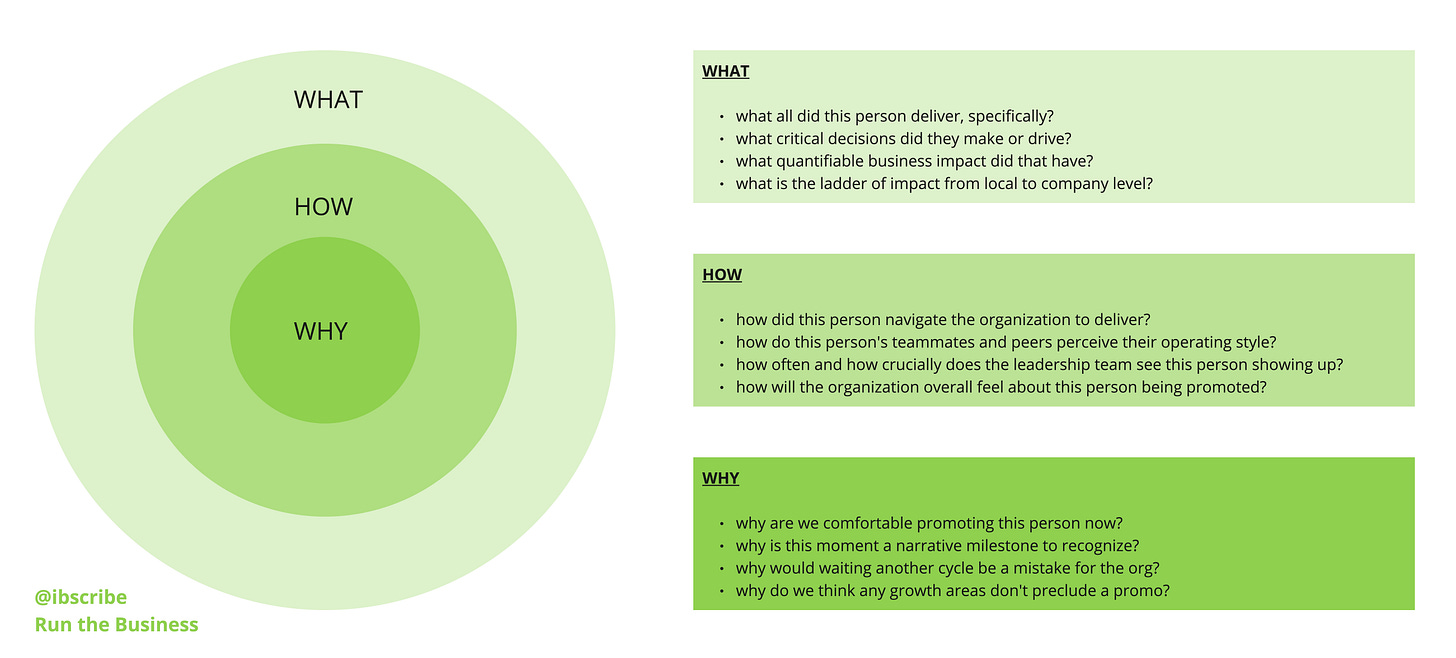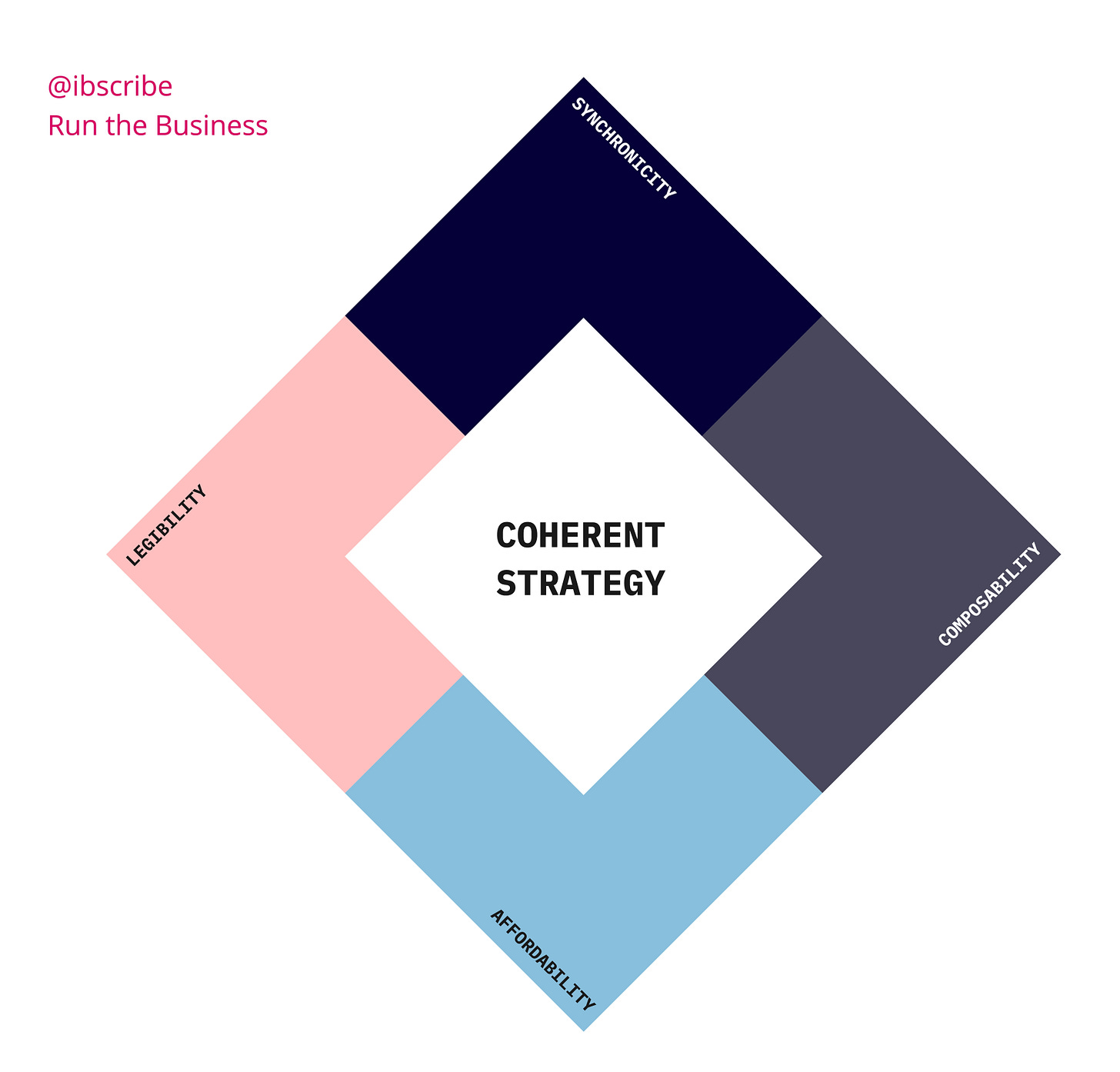I will be doing a fireside chat at the Product Excellence Summit on Oct 29th - join myself and Eric Ren (Head of Product Marketing @ Productboard) for this virtual event as we talk about breaking through plateaus in your PM career) - you can register for free via this link - hope to see you there!
In my last post I outlined the plateaus that many PMs hit career-wise, including the reasons behind those invisible ceilings. The whole discussion started with this LinkedIn post which garnered a lot of responses.
In this part 2, I’d like to talk through some of the ways PMs can re-assert agency and re-direct their careers in the direction they want. A lot of the ideas I’ll cite are ones I’ve articulated before, but in this post I’m going to connect these solutions back to the root problems enumerated above.
A lot of career stagnation comes down to not getting reps at doing new things (“don’t get to expand skills”) - the path through that is to develop and exercise product judgement. The main reason why many PMs shy away from getting into the fray is a feeling of imposter syndrome. The biggest learning for me on this front has been realizing that folks with good "instincts" are just keen observers of user behavior + business drivers + market trends, and that is a skill that can be acquired.
The next bit of advice I’ll offer is to NOT get caught up in the mechanics of a career ladder. Many PMs try to take a paint-by-numbers approach in climbing the ladder (“don’t get guidance”), almost treating it like a checklist. But in my view the different levels of product management are about the mode you’re operating in - in order to progress, you have to operate in a new mode vs operating in your current mode more efficiently.
If a PM is actually demonstrating operating ability at the next level, then it becomes a storytelling exercise (“don’t know how to brand”). Your direct manager / management chain have to construct a narrative of what you’ve done, how you’ve done it, and why now is the moment to celebrate that milestone.
But a lot of PMs are so caught up in the day-to-day execution of shipping features and making fixes that they can’t think proactively about career management (“don’t have time to think”). In fact, in many product organizations, there is more PM competition than collaboration. And that’s usually because the company overall isn’t aligned and organized around a coherent strategy. Ironically, in order for a PM to have an easier time executing, they need to spend time aligning leadership and teams up-front and semi-regularly. There are 4 dimensions to a coherent strategy: legibility, synchronicity, composability, and affordability. And attempting to straighten out such gaps provides exactly the kind of reps you need to climb the ladder.
Part of the challenge with PM roles, and all functions, is that your growth as a leader requires you to focus less within your department and operate more cross-functionally; the highest-leverage work at any company spans departments. The lack of growth opportunities in some ways is a lack of visibility for PMs across functions (“don’t have connections”). This is compounded by the paradox that unlike other roles (sales, marketing, engineering, support) there is not a direct correlation to an output metric for a PM; more salespeople is more deals, more marketing is more pipeline, more engineering is more code, more support is less tickets…but more PMs is what exactly? To me, the answer is leverage, which I’ve laid out in my product leadership principles (see here for the full version).
iteration » ideation
system » sections
foundation » features
synthesis » status
outcomes » output
sustainable » sporadic
fluidity » firmness
planning » plans
quality » quickness
proxies » process
direction » data
loops » leaps
writing » winging
But even if you’re doing everything I’ve shared above, you might still have hit a wall in your current company which you can’t see past (“don’t know options”). This is where thinking beyond the traditional definition of product might be the unlock. While trading emails with someone in my network (I was asking what is interesting but missing content for PM learning) I was presented with this gem:
“Generally I think there is an important trend going on, where a product is no longer just software. SaaS products consist of software, data, human input, APIs, integrations, etc. So the definition of ‘product’ is changing. Product managers need to see this. They need to think broadly about the product although they are in their work trying to define it narrowly.”
I love this line of thinking, because it jives with many of my opinions (and biases) about the craft of product management. And it’s also a reminder that new opportunities materialize when you choose to widen your aperture and take a more comprehensive look at the problem from a customer perspective; you have to redefine your product’s scope - no one else has the context or vision to do that for you. This mindset shift is the key to finding your way through the ambiguity that is at the heart of product building / market capture.
If you enjoyed this post, please consider subscribing (and if you’re already a free subscriber than consider upgrading to a paid plan to get access to exclusive content and community).
As always, I’d love to hear from readers on their career navigation tips - please chime in via comments👇 or join the chat via the Substack app.
further reading / references
read part 1 of invisible career asymptotes here (the original invisible asymptotes post by Eugene Wei is one of my favorite frameworks)
you can read more of my thoughts on imposter syndrome / product vision here, and in this audio post I talk about how to get better at honing product judgement
customer experience loops are a great way to stay plugged into user feedback
you can see my jargon-free translation of the PM career ladder here
check out my 3-part promotion playbook here
learn more about the 4 dimensions of coherence and staying synced on strategy here
I share some thoughts on PM competition vs collaboration in this episode
the way to think about the product paradox is to realize that the PM role is about leverage, not output - that’s what my product leadership principles highlight
I have more thoughts on the evolving definition of product management
childish drawing / interpretation
I will be doing a fireside chat at the Product Excellence Summit on Oct 29th - join myself and Eric Ren (Head of Product Marketing @ Productboard) for this virtual event as we talk about breaking through plateaus in your PM career) - you can register for free via this link - hope to see you there!











